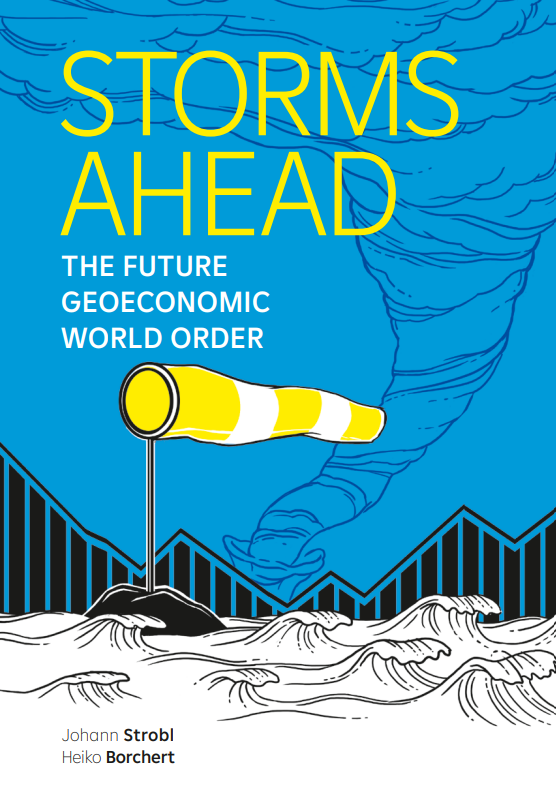Opinion
Inflation, inequality and immigration: Spelling the digital recovery with three “I”s
The digital transition offers us a new opportunity to reach out across the global economy - hopefully we will find the strength to use it.
This article was originally published by the OECD Forum Network is part of a series in which OECD experts and thought leaders — from around the world and all parts of society — address the COVID-19 crisis, discussing and developing solutions now and for the future. Aiming to foster the fruitful exchange of expertise and perspectives across fields to help us rise to this critical challenge, opinions expressed do not necessarily represent the views of the OECD.
As the world recovers from the COVID-19 pandemic, we need to build an economy that is stronger and more resilient than before—but which also takes advantage of the strengths that we used to get through the crisis. Technology has held many of our communities together during the worst of the outbreak. Now we need to look outside our personal and national boundaries to get growth going again.
OECD research has shown how the pandemic has affected every aspect of contemporary life, from job security to mental health. For a certain class of workers, notably those whose prior lives involved endless travel or even more endless commuting, it’s been great to be home. For other people it’s been a severe setback. Whether it’s caregiving duties, broadband access, jobs that can’t be done remotely or work that can’t be done at all, many households are struggling to survive. In the developing world, where infrastructure and health care can be harder to come by, the challenges are orders of magnitude greater.
Inflation, inequality and immigration are three trends that will be essential to putting the global economy back on track. Any policy response must take on all of these, alongside the ongoing standbys of innovation and investment. We know from before the pandemic that climate change and digitalisation require long-term, forward-looking planning. As the world emerges from recession, those goals are more important than ever.
In an economic context, inflation is the most familiar challenge. We know to be worried when inflation strays too far from its comfort zone, whether that be rising prices or negative interest rates. In the developed world, however, the spectre of future problems pales in comparison to the needs of the present. For one thing, a little bit of inflation is a boon for growth and reflects an expanding economy. Most importantly, tightening policy too soon could cut off the recovery in its tracks. As long as unemployment has not recovered, inflation is unlikely to take economic centre stage.
Inequality is a stickier problem. Coming out of the pandemic, workers with the highest-paying, most on-line jobs may be even better off than before. Savings rates are up and financial markets have soared, meaning those who had investments before COVID-19 hit have watched their personal fortunes increase even as the overall economy shut down. But that hasn’t staved off a recession. The EU economy, for example, shrank more than 6% as a whole last year; France, Italy and Spain contracted 8%, 9% and 10%, respectively. In the developing world, the shocks are even greater. Not only are workers losing their livelihoods now, but children are also losing their educations making it ever harder to play catchup.
Those who do have the resources therefore need to step forward and commit wholeheartedly to broadening the recovery as widely as possible. To quote Dr Mukhisa Kituyi, Secretary-General of the United Nations Conference on Trade and Development, “The risk is that the huge digital divides that already existed between and within countries will only worsen in the wake of the pandemic. The result will be even deeper inequalities”.
It can be hard to hang onto this wider perspective now that many of us are only seeing a handful of people in our daily lives. The last “I”, immigration, is thus a mindset as much as an economic issue. Before the pandemic, “foreigners” were frequent targets of populist scaremongering, a quick way to point fingers at “them” as opposed to “us”. At the same time, in their daily lives Europeans grew used to crossing borders at will and taking advantage of the vast resources of the entire single market. The one-two punch of Brexit and the pandemic put an halt to that freedom inside the single market, and cross-continental links have all but vanished. Re-opening borders, for short-term travel, longer-term postings and getting residency again, will be essential for the recovery to take hold.
We have seen that a problem such as COVID-19 doesn’t respect borders; it’s not something we can seal ourselves off from. And even as we take shelter in our homes and our internet connections, we have to be mindful of how that fits into the rest of the world. There is a global threat, and a less than global response will not work.
Co-operation to limit the spread of the disease has been one of the few silver linings of COVID-19. The pharmaceutical sector has built and produced vaccines in record time, thanks to new technologies and worldwide teamwork. The European Union has shown unprecedented solidarity with its Recovery and Resilience Facility and accompanying joint budget, which will pay enormous dividends for many years to come. The United States has also poured resources into supporting the economy at the household level, as well as for its key industries.
The challenge will be to stay the course and not fall back into old habits of caution and austerity. While we don’t want to subsidise failing sectors forever, in the middle of a crisis it’s very hard to tell a “zombie” firm from one that will recover with the right safety net. The digital transition offers us a new opportunity to reach out across the global economy—hopefully we will find the strength to use it.
Republishing and referencing
Bruegel considers itself a public good and takes no institutional standpoint.
Due to copyright agreements we ask that you kindly email request to republish opinions that have appeared in print to [email protected].













